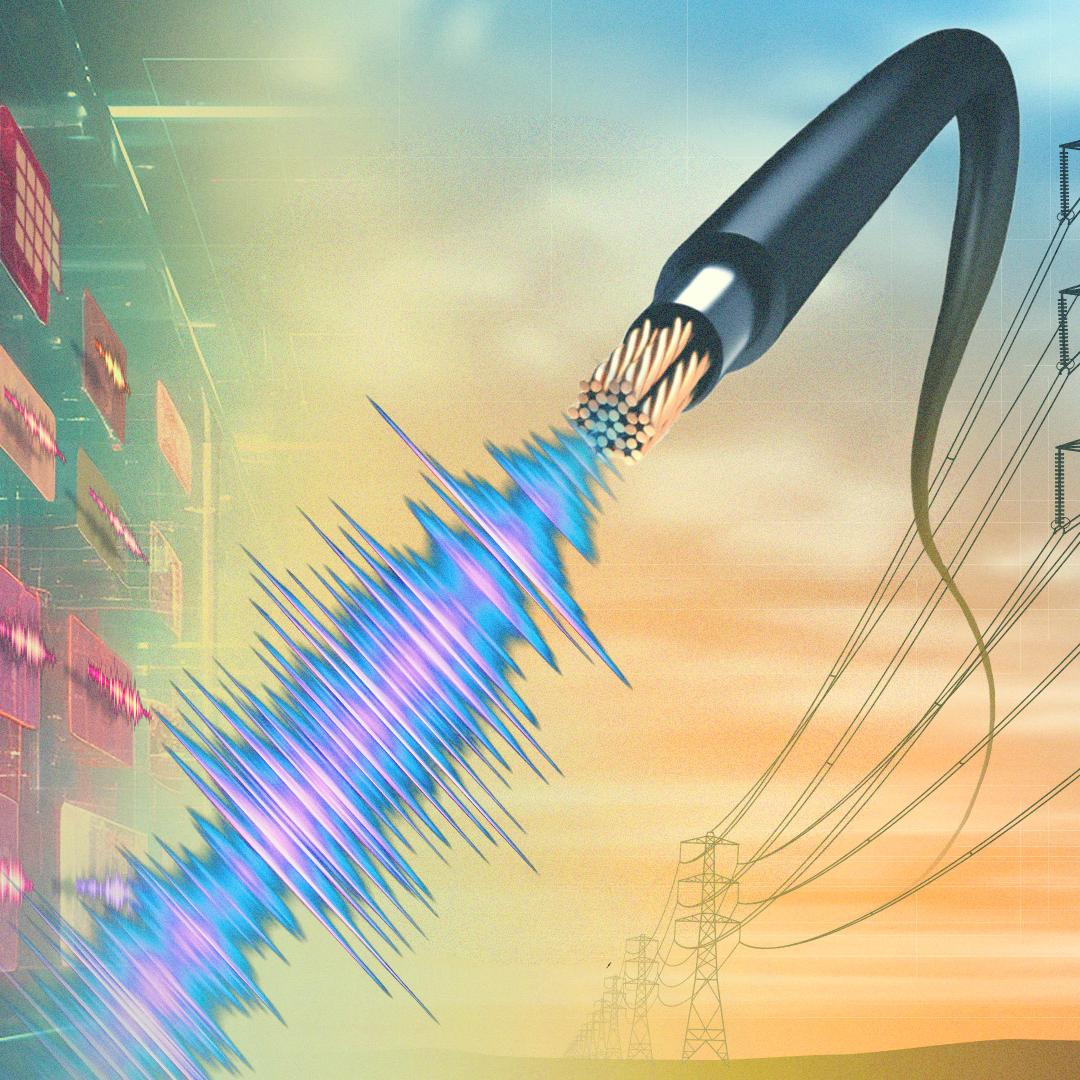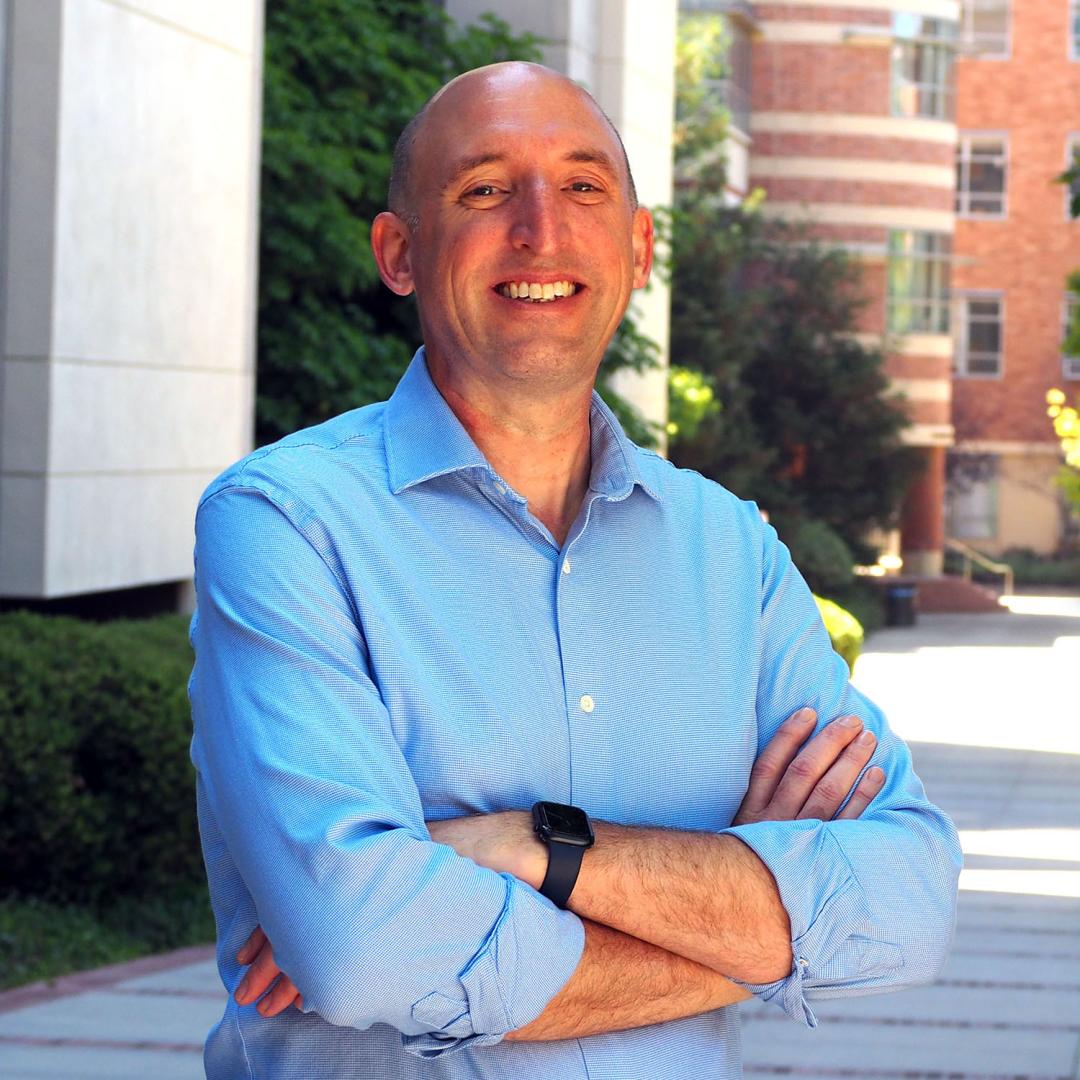
Filter News
Area of Research
- Advanced Manufacturing (2)
- Biology and Environment (41)
- Clean Energy (66)
- Climate and Environmental Systems (1)
- Computer Science (2)
- Fusion and Fission (3)
- Isotopes (1)
- Materials (54)
- Materials for Computing (7)
- National Security (21)
- Neutron Science (18)
- Nuclear Science and Technology (2)
- Quantum information Science (1)
- Supercomputing (29)
News Type
News Topics
- (-) Cybersecurity (23)
- (-) Environment (71)
- (-) Grid (22)
- (-) Machine Learning (18)
- (-) Molten Salt (2)
- (-) Physics (40)
- (-) Polymers (17)
- (-) Quantum Science (28)
- (-) Transportation (37)
- 3-D Printing/Advanced Manufacturing (55)
- Advanced Reactors (12)
- Artificial Intelligence (33)
- Big Data (13)
- Bioenergy (40)
- Biology (42)
- Biomedical (25)
- Biotechnology (11)
- Buildings (21)
- Chemical Sciences (37)
- Clean Water (7)
- Climate Change (36)
- Composites (11)
- Computer Science (70)
- Coronavirus (23)
- Critical Materials (12)
- Decarbonization (33)
- Education (3)
- Element Discovery (1)
- Energy Storage (55)
- Exascale Computing (12)
- Fossil Energy (1)
- Frontier (17)
- Fusion (21)
- High-Performance Computing (35)
- Hydropower (2)
- Isotopes (28)
- ITER (3)
- Materials (64)
- Materials Science (61)
- Mathematics (4)
- Mercury (6)
- Microelectronics (1)
- Microscopy (25)
- Nanotechnology (32)
- National Security (34)
- Net Zero (5)
- Neutron Science (57)
- Nuclear Energy (41)
- Partnerships (27)
- Quantum Computing (10)
- Renewable Energy (1)
- Security (17)
- Simulation (12)
- Space Exploration (3)
- Statistics (1)
- Summit (22)
- Sustainable Energy (43)
- Transformational Challenge Reactor (4)
Media Contacts
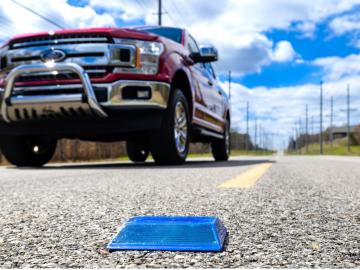
Working with Western Michigan University and other partners, ORNL engineers are placing low-powered sensors in the reflective raised pavement markers that are already used to help drivers identify lanes. Microchips inside the markers transmit information to passing cars about the road shape to help autonomous driving features function even when vehicle cameras or remote laser sensing, called LiDAR, are unreliable because of fog, snow, glare or other obstructions.
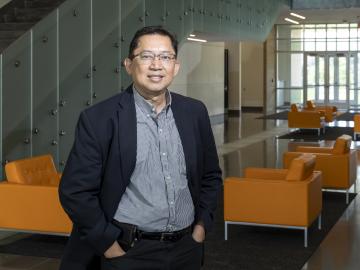
Rigoberto Advincula, a renowned scientist at ORNL and professor of Chemical and Biomolecular Engineering at the University of Tennessee, has won the Netzsch North American Thermal Analysis Society Fellows Award for 2023.
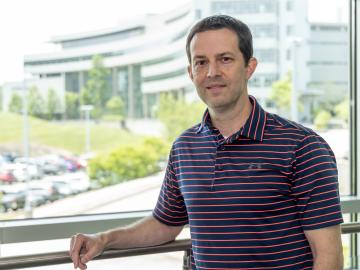
When reading the novel Jurassic Park as a teenager, Jerry Parks found the passages about gene sequencing and supercomputers fascinating, but never imagined he might someday pursue such futuristic-sounding science.
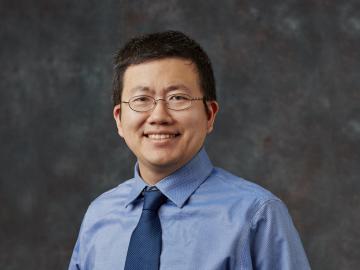
Shih-Chieh Kao, manager of the Water Power program at ORNL, has been named a fellow of the American Society of Civil Engineer’s Environmental & Water Resources Institute, or EWRI.
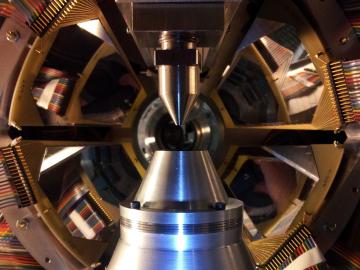
Led by Kelly Chipps of ORNL, scientists working in the lab have produced a signature nuclear reaction that occurs on the surface of a neutron star gobbling mass from a companion star. Their achievement improves understanding of stellar processes generating diverse nuclear isotopes.
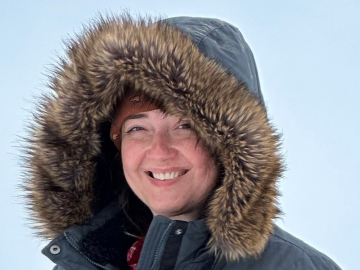
Colleen Iversen, ecosystem ecologist, group leader and distinguished staff scientist, has been named director of the Next-Generation Ecosystem Experiments Arctic, or NGEE Arctic, a multi-institutional project studying permafrost thaw and other climate-related processes in Alaska.
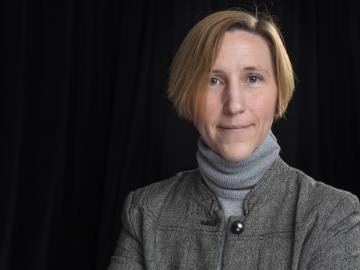
Kelly Chipps, a nuclear astrophysicist at ORNL, has been appointed to the Nuclear Science Advisory Committee, or NSAC. The committee provides official advice to DOE and the National Science Foundation, or NSF, about issues relating to the national program for basic nuclear science research.
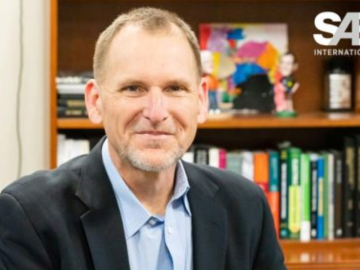
SAE International has awarded ORNL Buildings and Transportation Science Division Director Robert Wagner with the SAE Medal of Honor for his dedication and support of the organization’s mission of advancing mobility solutions.
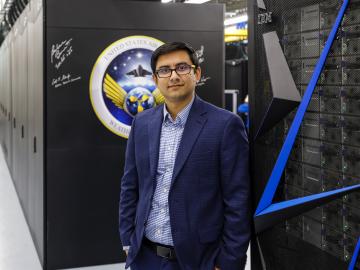
Climate change often comes down to how it affects water, whether it’s for drinking, electricity generation, or how flooding affects people and infrastructure. To better understand these impacts, ORNL water resources engineer Sudershan Gangrade is integrating knowledge ranging from large-scale climate projections to local meteorology and hydrology and using high-performance computing to create a holistic view of the future.
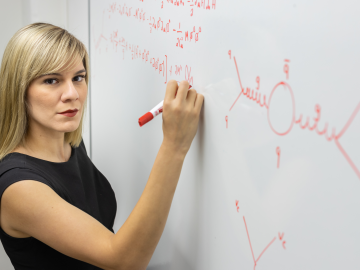
Andrea Delgado is looking for elementary particles that seem so abstract, there appears to be no obvious short-term benefit to her research.


